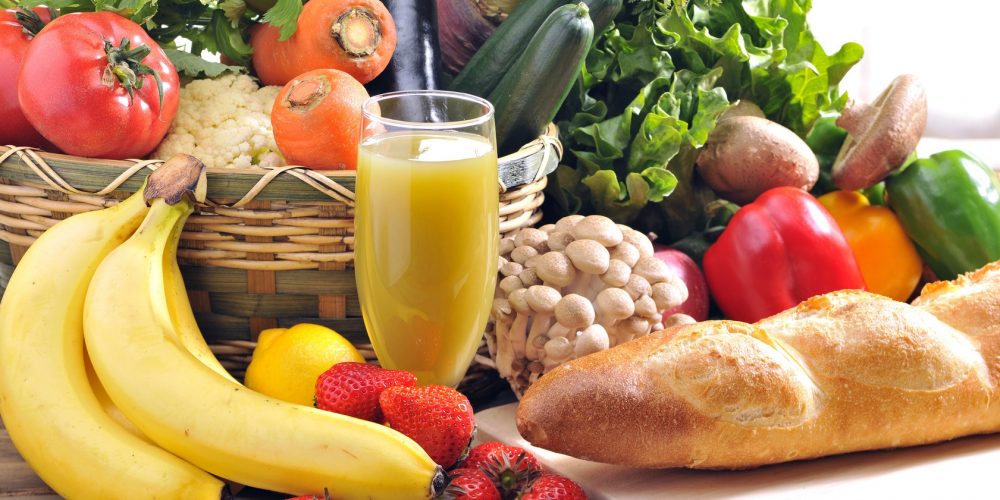The Globe and Mail recently published an article about the broken state of Canada’s Food Guide. The article points to a number of things wrong with our national food guide.
The Globe and Mail recently published an article about the broken state of Canada’s Food Guide. The article points to a number of things wrong with our national food guide. The guide has always been unduly influenced by the food industry, as seen in the starring role of milk, touted by the dairy industry as being a vital source of calcium and protein despite both nutrients being found in a number of other foods. There was also an odd span of time during the nineties when grains took primary precedence over fruits and vegetables, though it’s switched back since. This move likely had a lot to do with the push toward fortified breakfast cereals as a means of selling more “value-added” wheat products, a phenomenon that Marion Nestle examines in her book Food Politics.
Another flaw, which can also be seen in the breakfast cereal phenomenon, is the guide’s hyper-focus on individual nutrients rather than whole foods. Such is this obsession with individual nutrients that the presence of calcium in cheese and those vitamins and minerals present in tomato sauce are seen as valid enough reasons for Canada’s Food Guide to suggest a slice of leftover pizza for breakfast. There are almost no recommendations to avoid processed foods, except to limit those containing trans and saturated fats. This despite overwhelming evidence that ultra-processed foods are the culprit behind many of the nation’s health problems, including obesity, diabetes, heart disease and cancer.
All of this is to say that Canada’s Food Guide indeed needs an overhaul. And if we’re looking for a model, we need look no further than Brazil.
Last year Brazil made radical changes to its food guide. Unlike most national food guides, which categorize foods based on type (grains, vegetables, dairy, etc.), Brazil has categorized foods based on processing. Their four food categories are:
- naturally or minimally processed foods;
- oils, fats, salt and sugar;
- processed foods (these include bread, cheeses, cured meats and pickles); and
- ultra-processed foods.
The recommendation to avoid ultra-processed foods is a move toward more sustainable food practices.
Even more radical than these new categories are the recommendations attached to them. Naturally or minimally processed foods are to make up the basis of a person’s diet. Oils, fats, salt and sugar are to be used in moderation. Processed foods should be limited. Ultra-processed foods should be avoided altogether. Given that breakfast cereal would fall under the definition of ultra-processed food, it’s difficult to imagine Canada’s Food Guide ever recommending a complete avoidance of such things.
Brazil’s guide also makes an explicit connection between healthy diet and sustainable food production and distribution practices. Though on first reading the guide, it seems that sustainability is glossed over in a single sentence, the recommendation to avoid ultra-processed foods is, in and of itself, a move toward more sustainable food practices.
RELATED: Fixing Canada’s Food System
Where the guide really rounds itself out is in its assertion that diet is more than an intake of nutrients. Not only does it recommend whole foods as the basis of a person’s diet, it also addresses the context in which food is eaten, whom it’s eaten with and the challenges associated with adopting a diet so radically opposed to the industrial food system.
Brazil’s guide recommends eating “regularly and carefully, in appropriate environments and in company” – the rationale being that eating with others at home is more likely to encourage the consumption of meals cooked from scratch using natural/minimally-processed foods. Eating in this context also allows for the passing on of traditional food practices and cooking skills.
RELATED: A Crash Course in Vegetable Gardening
Since this document is over a hundred pages long, Brazil’s Ministry of Health has helpfully distilled the essentials into ten easy steps, as follows:
Brazil’s 10 Steps to a Healthy Diet
- Make natural or minimally processed foods the basis of your diet.
- Use oils, fats, salt and sugar in small amounts.
- Limit consumption or processed foods.
- Avoid consumption of ultra-processed foods.
- Eat regularly and carefully in appropriate environments and in company.
- Shop in places that offer a variety of natural or minimally-processed foods.
- Develop, exercise and share cooking skills.
- Plan your time to make food and eating important in your life.
- Out of home, prefer places that serve freshly made meals.
- Be wary of food advertising and marketing.
And in case that’s still too much, they also provide a golden rule for eating: Always prefer natural or minimally processed foods and freshly made dishes and meals to ultra-processed foods.
At first glance it may not seem that the avoidance of ultra-processed foods is all that radical, especially to those who already take the steps to avoid such foods. However, when we consider that Canada’s Food Guide has been developed under direct influence from the food industry, the radical nature of this new food guide becomes clear.
The tenth step alone demonstrates how Brazil has developed its food guide in direct opposition to the industrial food system, has in fact warned people against it. The power of the dominant food system often seems absolute because of its far reach. But Brazil’s new food guide offers a promising move away from industrial food and toward a more sustainable, holistic way of eating.
RELATED: Growing Up Organically – Family farms and global food security

Order A\J’s Ultimate Health Issue now for more on what Canada needs to build a healthier society, including Wayne Roberts’ take on how the entire culture of food needs transformation, from field to fork.
Genevieve is earning her master’s degree in Environmental Studies at York University with a focus on sustainable food systems, food education and food literature. In The Mouthful, she blogs about the environmental politics and possibilities of food. Genevieve is a certified pastry chef and aspiring novelist. She lives in Toronto. @GFullan













